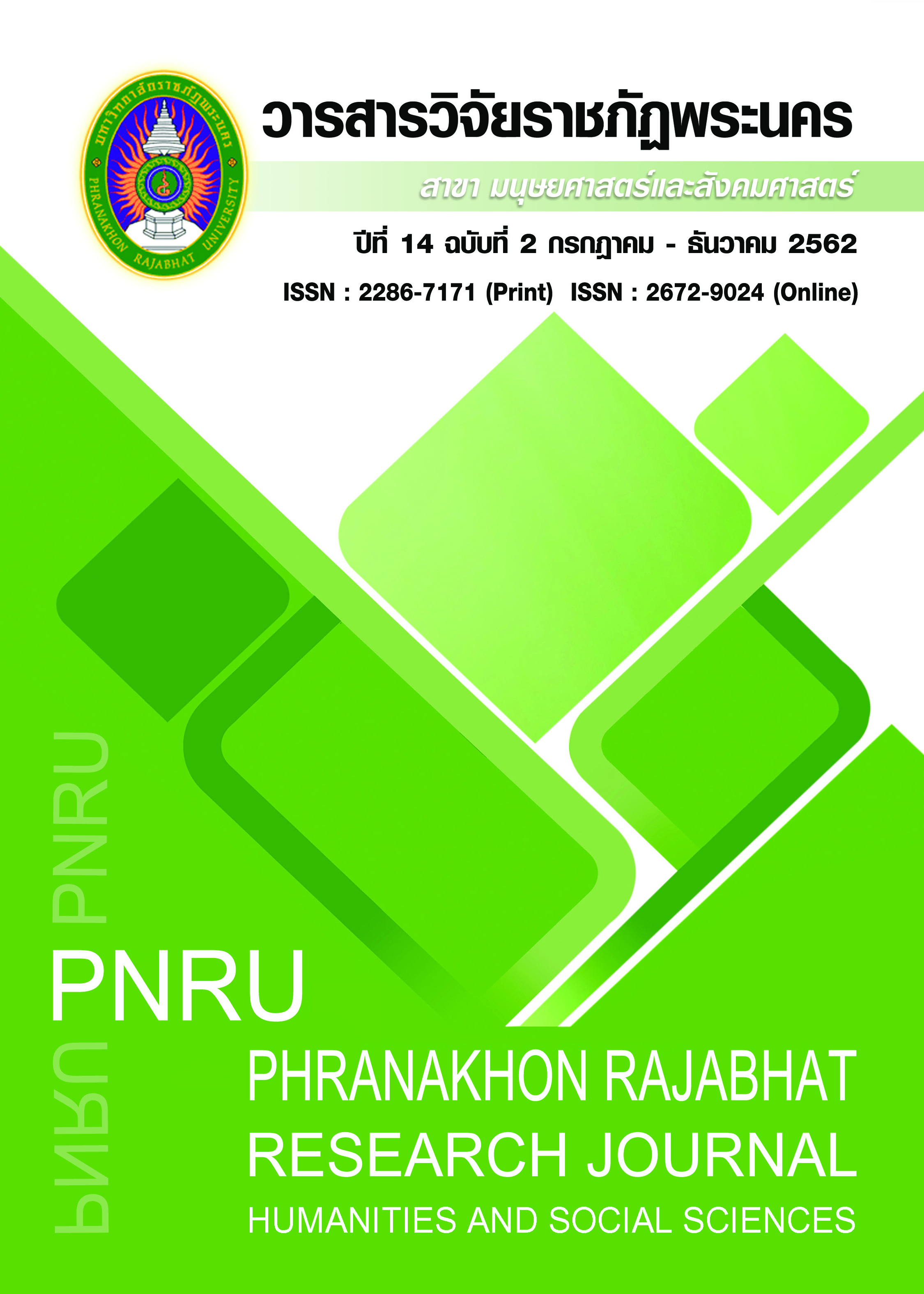KNOWEDGE MANAGEMENT WITH BUDDHADHAMMA IN THE MONTHLY LITERATURE OF LANNA
Main Article Content
Abstract
The purposes of this research were 1) to study the knowledge management with Buddhadhamma in Lanna monthly literature, 2) to study the Buddhist principles in Lanna monthly literature, 3) to analyze the Buddhist principles integration in Lanna monthly literature, and 4) to present the guidelines and new body of knowledge on the knowledge management with Buddhadhamma in Lanna monthly literature. The data of this qualitative research were collected by in-depth interviews and focus group discussions. The results of the study indicated that: 1. The Lanna monthly literature consists of 12 Dhamma Jata or 12 destinies, namely,
Suddhanu, Chaddanta, Mahosatha, Bhuridatta, Uddhara, Buddhaghosa, Nemiraja, Sarada,Buddhabhiseka, Suvannasama, Vesantara, and Sambhamitta. The body of knowledge was based on belief and vision in the relation of human beings and environment, both natural and supra-natural environment, and it was also based on intellectualism and moralism. It had a process in problem solving and adjusting to environment and social changes by presenting the advantages of wholesome action in Buddhism and applying local wisdom in order to support arts, cultures, traditions, and festivals as the way of life in each month throughout the whole year round. 2. The principles of Buddhism found in Lanna monthly literature are 5 subjects for gradual instruction on giving, morality, heavenly pleasures, the disadvantage of sensual
pleasures, and the benefits of renouncing sensual pleasures. The Buddhist principles found here can be concluded into the faith in Buddhism, creation of local wisdom, duty of Buddhists, and living in society.
3. The values of Buddhist principle integration in Lanna monthly literature are that: In the faith of Buddhism, Lanna society accepts and creates work for the benefits of Buddhism; In local wisdom, the use of palm leaf as the sermon text scripture to preserve and propagate Buddhist teachings; In Buddhist duty, the values of offering palm leaf sermon and other religious objects to temples have been continued until present, and in living in society, living and doing activities together happily and peacefully are encouraged. 4. The integration of knowledge management with Buddhadhamma in Lanna monthly literature can be concluded in “ECPH: Model”
Article Details
Each publish articles were copyright by Phranakorn Rajabhat University
Any contents which appeared in each articles in the journal were authors personal opinion. It did not relate to Phranakorn Rajabhat University and other instructors in the university. Each authors would take responsibility on their articles. If there are any mistake, the authors will take responsibility themselves
References
Tangtavee, S. (1984). Literature and religious literature. Bangkok : Odeinsator Publication. (in Thai)
Yanapratip, T. (1981). Religious literature. Bangkok : wiktoria Publication. (in Thai)
Premjitt, S. (2001). Project of conservative Lanna translator and analysis. Chiangmai:Mingmoung Publication. (in Thai)
Phayomyong, M. (1970). History of Thai Lanna literature. Chiangmai : Konmeaung Publication. (in Thai)
Vajarasartr, B. Handbook of North language of 65 hour. Chiangmai: Tharatong Publication.(in Thai)


